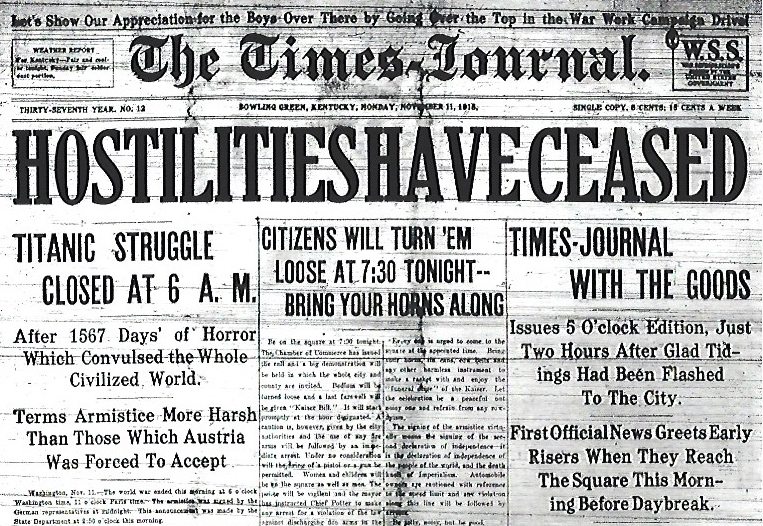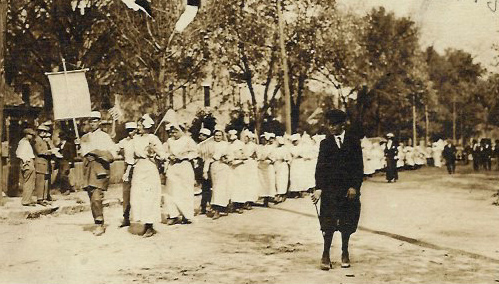GREAT WAR IS BROUGHT TO AN END: Greatest Struggle in World’s History Ceases With Signing of Armistice Terms.
So declared the now century-old news clipping of November 11, 1918 that Bowling Green’s Martha Potter pasted into her scrapbook. As we have previously blogged, the Armistice was met with worldwide joy and relief. Finally, an end to “1,567 days of horror,” read the Associated Press story, “during which virtually the whole civilized world has been convulsed.”
Few Bowling Green newspapers from that period survive, but other clippings in Martha’s scrapbook tell us of the local celebrations. The very afternoon of the Armistice, citizens took turns ringing a “Liberty Bell” in an improvised belfry in front of the Palace Confectionery on Park Row. Even a bull terrier belonging to Martha’s son Douglass got involved, tugging on the end of the rope to the delight of onlookers. The Chamber of Commerce summoned everyone to gather that evening in the public square, promising that “bedlam will be turned loose and a last farewell will be given ‘Kaiser Bill.'” Officials warned, however, that NO drunkenness or celebratory firing of pistols would be tolerated.
A few days later, “one of the largest crowds ever seen in the city” made up a “peace parade” nearly a mile long, beginning at the Mansard Hotel at Main and Center streets and winding its way through town. Prominent citizens, schoolchildren, Red Cross women, Canteen Girls on horseback, firefighters, police, and WKU’s Student Army Training Corps joined the parade, headed by a band and festooned with flags, banners and a bust of President Woodrow Wilson. Those absent were not forgotten. The day after the Armistice, the News-Democrat published the names of Bowling Green and Warren County men, both white and African-American, as well as nurses, serving overseas at the war’s end. This, too, became part of Martha’s scrapbook, as her son John was currently “over there.”
Search TopSCHOLAR and KenCat for more collections in the Manuscripts & Folklife Archives of WKU’s Department of Library Special Collections relating to the Great War, or browse a list here.


